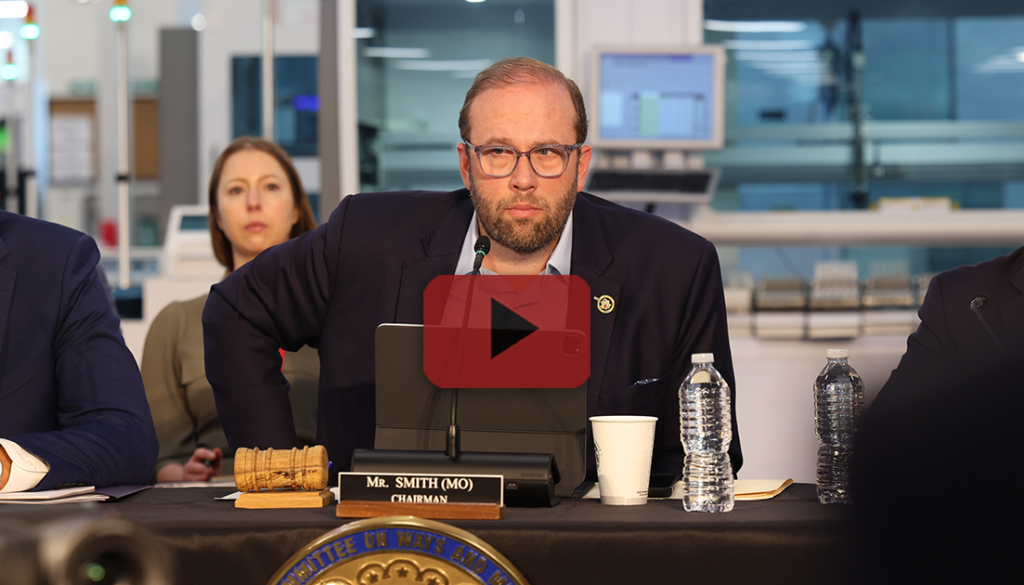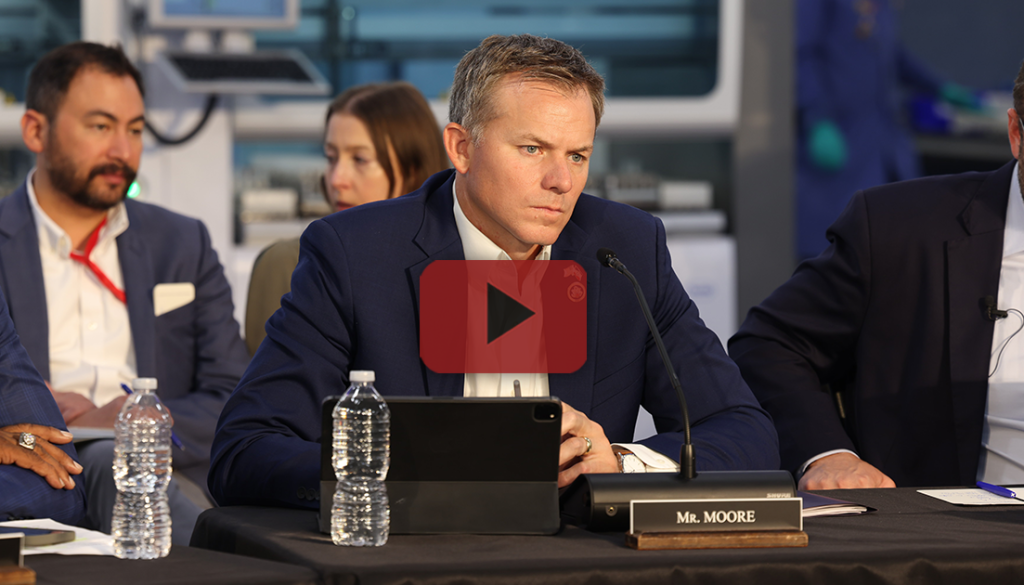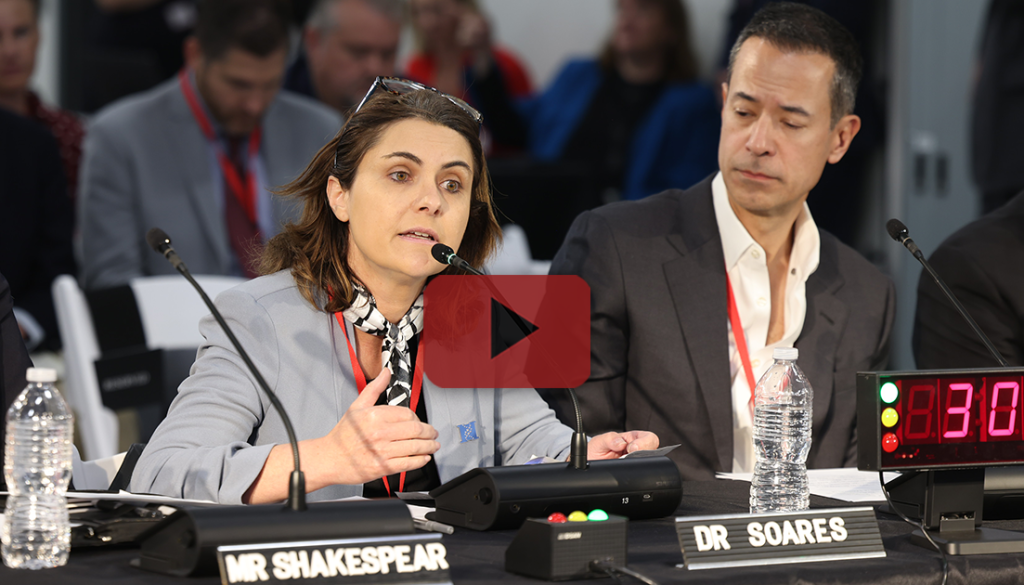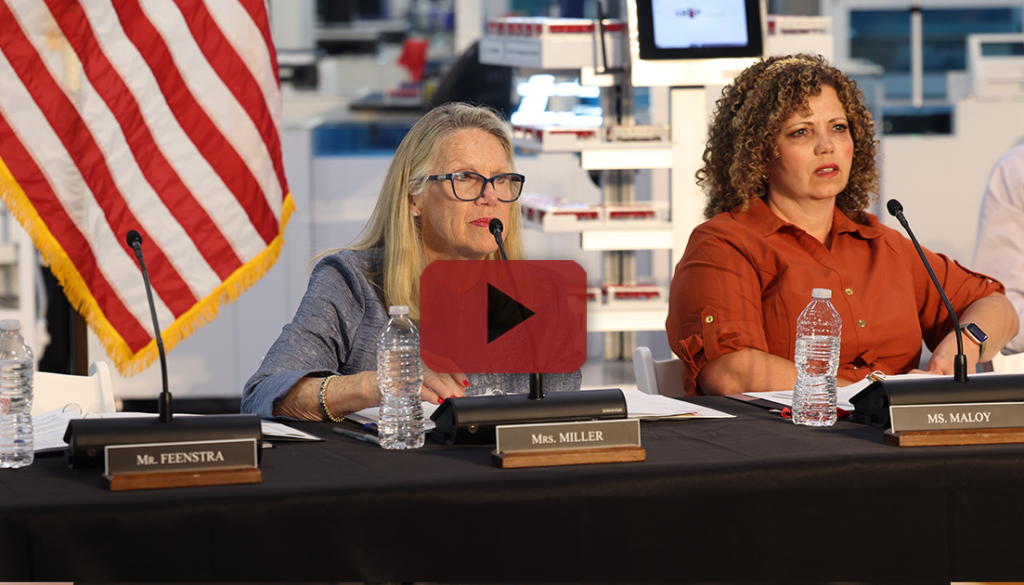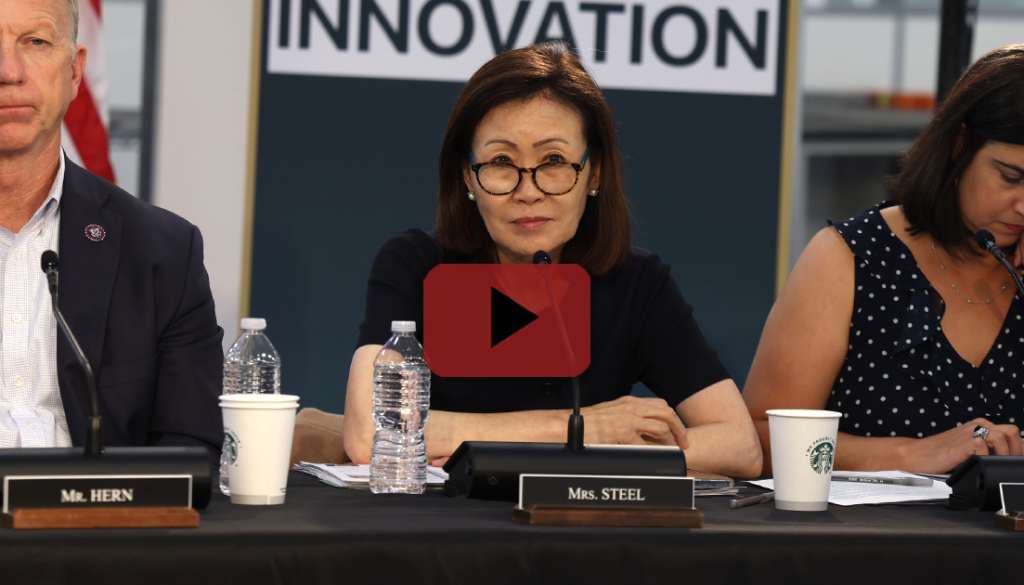Five Key Moments from Field Hearing on Medical Innovation and Economic Prosperity
SALT LAKE CITY, UTAH – Inside of a diagnostic testing center in the heart of Utah’s “Silicon Slope,” the Ways and Means Committee heard how medical innovation is vital to the nation’s health and economic prosperity. A Utah father shared the story of how advanced treatments and curative therapies saved his young son’s life from a rare kidney disease. Medical innovators, including drug and device manufacturers, highlighted how continuing the pro-growth tax policies included in the 2017 Trump tax cuts, like the research and development (R&D) deduction, can help innovators develop new treatments, expand their operations, and reinvest into their workforce. Nationally, R&D investment increased 18 percent after the 2017 Trump tax cuts – supporting 2 million jobs directly and 21 million indirectly. Members and medical innovator witnesses also noted the harmful impact of the Inflation Reduction Act on raising seniors’ premiums and killing as many as 135 new cures.
The hearing comes on the heels of the Ways and Means Committee passing legislation allowing Medicare to cover cutting-edge anti-obesity medication, multi-cancer detection screenings, and breakthrough medical devices. In addition to restoring pro-growth tax policies, witnesses urged the Committee to continue cutting red tape that stands in the way of domestically created next generation medical treatments and cures.
Medical Innovators Call on Congress to Use 2025 Tax Expirations to Help Spur R&D.
Under the 2017 Trump tax cuts, businesses and innovators were rewarded for taking the risks needed to experiment and create new treatments and cures. Unfortunately, many of those incentives rewarding investment have begun to phase out or will be expiring soon. The Ways and Means Committee recently established 10 Tax Teams to build on the success of the Trump Tax Cuts, including how to maintain America’s position as the leader in global innovation, in advance of 2025. At the hearing, Ways and Means Committee Chairman Jason Smith (MO-08), called on the witnesses to share their ideas on how Congress can shape the tax code to reward innovation and save small businesses from a “crippling” tax burden.
Chairman Smith: “Looking ahead to 2025, this committee is exploring how the tax code can help better facilitate innovation, especially in the biotech industry, create new technologies and encourage domestic manufacturing. With your experience and understanding of drug development, what would you recommend Congress look at when it comes to supporting health care innovation through the tax code?”
Frank Watanbe, biotechnology startup president: “I think there are a number of specific provisions. The first one is restoring full deductibility for R&D investments. The committee has already taken that up. The bill has passed the House. We hope to see that pass through. The challenge there is that small companies are paying taxes even though they’re not making any money, because they’re not able to fully deduct their R&D expenses. In particular for smaller companies, that can be crippling.”
New Technology Is Key to Advancing Medical Innovation
Medical breakthroughs have already created new, never-before-seen treatments for patients, and artificial intelligence (AI) promises to help further advance medical innovation. Rep. Blake Moore (UT-01), host of the field hearing, asked a Utah oncologist, who is managing clinical trials for cancer treatments, what barriers she faces in using AI to help patients.
Rep. Moore: “As you embrace AI and other types of technologies, what barriers exist that for you that you can’t necessarily find those next-generation innovative technologies that will help you find those cures?”
Dr. Heloisa Soares, Utah oncologist: “There’s a need for AI to have data sharing integration and management. There’s a lot of different electronic medical records that are separate and spread. AI technologies can integrate this data. We can share them in the proper ways, and that will lead to so much more innovation. I think working on ways that we can safely integrate AI and share data will be imperative for us to continue to advance and also use that to identify the patients that will benefit from new treatment options.”
Ways and Means-Passed Bills Will Improve Care for Cancer Patients
The hearing follows the Committee’s June markup of legislation allowing Medicare to cover new anti-obesity medications, multi-cancer early detection screenings, and breakthrough medical devices. This legislation will allow seniors to use the latest technology to take care of their health, while tackling the explosive growth in health care spending forecasted over the coming decades. For the bill that provides multi-cancer early detection testing, a Utah oncologist shared with Chairman Smith (MO-08) the importance of identifying cancer early to give patients a greater chance of beating the terrible disease.
Chairman Smith: “Dr. Soares, you have been at the forefront of innovative treatments in oncology and helping cancer patients navigate what is called the six scariest letters in the English language. This committee recently approved legislation introduced by Representatives Arrington and Sewell that expands Medicare coverage to multi-cancer early detection screening tests. Can you discuss how having Medicare cover innovative early detection tests can improve the care you are able to provide your patients and ultimately lower health care costs?”
Dr. Heloisa Soares, Utah oncologist: “I can share with you that there are tests that are available….blood tests that I can monitor the tumor cells that are potentially present after patients receive treatment and that has been fundamental to potentially help in decreasing the need for patients to come to the cancer center…That has been fundamental to keep patients on surveillance, on monitoring and then also decreasing the cost of doing these scans and visits, if I can do that with blood…In terms of early detection, I think there are several technologies that are very promising. When they are proved to be safe, they will be fantastic for our patients and for improving their survival.”
Sound Tax Policy Will Secure Supply Chains and Strengthen America’s Competitive Edge
Rep. Carol Miller (WV-01), as the leader of the Supply Chains Tax Team, highlighted how the Trump tax cuts created an environment that fostered innovation domestically to lower the United States’s dependence on foreign countries for critical supplies like medicine. Among other elements of tax reform, the treatment of R&D, full expensing, and interest deductibility, in conjunction with a lower corporate rate, made the United States a more attractive place to conduct research and do business. Ways and Means Tax Teams are identifying how different areas of the tax code could benefit American innovators in the face of strong competition from countries like China. The president of a dermatology-focused startup testified that negative changes to the tax code, like raising the current corporate rate, would lead to fewer new treatments: biotechnology companies would spend less on R&D and medical startups like his would struggle to turn their research into treatments.
Rep. Miller: “Chairman Smith recently created 10 Tax Teams…We are focused on what we can do for 2025. I am heading one of the Tax Teams. What I’m hearing about the most is the corporate tax rate. Because of President Trump’s work, we tried to create a favorable environment for companies engaged in R&D and it’s disturbing to me that our medical supply chain is heavily reliant on foreign manufacturers. Could you explain to me the benefits of a 21 percent corporate tax rate and how that helps you?”
Frank Watanabe, biotechnology startup president: “As I mentioned earlier, the smaller companies, most of us, are not actually profitable. We don’t pay taxes, at least at the moment, although we all hope to sometime in the very near future. It’s also important to understand that small biotechs exist inside of a much larger ecosystem. I mentioned earlier, you know, for example, the importance of M&A [mergers and acquisitions] to finish development and to bring therapies to patients. I think that any change that fosters the overall biotechnology sector in America, like the corporate tax code will have a very positive effect on R&D…Large pharmaceutical companies…they invest immense amounts of money in research and development. To the extent that they have to pay higher tax bills, all of those dollars are dollars that they will not then spend on R&D and develop additional therapies.”
Telehealth Helps Patients Beat Bidenflation
A priority of the Ways and Means Committee is allowing Americans to get health care regardless of where they live and work. Telehealth is an innovative way to help more Americans access health care. The Committee has passed several pieces of legislation that increase access to telehealth, including Rep. Michelle Steel’s (CA-45) Telehealth Expansion Act. Not only does telehealth give patients more control over their care, but as a Utah father shared, the technology allows families to better manage schedules and even save on costs required to travel for a doctor’s appointment.
Rep. Steel: “Telehealth has been a vital lifetime lifeline for patients living in urban, suburban and rural areas across the country. Last June, Ways and Means took a proactive step in passing the Telehealth Expansion Act, which would allow 32-plus million Americans with Health Savings Accounts to have permanent access to telehealth and remote care services without first having to meet their deductible… I know that you are Chair of the Utah Telehealth Advisory Board at the same time that telehealth helps to connect you with specialty care providers for your son. Could you tell us that how important it is we move forward with this?
Kasey DeLynn Shakespear, Utah father of son with rare kidney disease: “When we have to travel to Salt Lake City for an appointment, it’s not only nine hours of our time, but it’s the cost of gas to travel up here, it’s the cost of lodging. Typically, we have to stay overnight somewhere. It’s the cost of food…When you look at rising gas prices, inflation for the cost of food and for lodging, those rates that were reimbursed don’t change when those prices go up. Those exacerbated prices make the problem worse for us personally. Being able to access telehealth from home just gives us a component of being able to keep a consistent schedule, reduce cost and really protect our son because taking him out into public is dangerous until he’s got a higher immune system. It’s been huge to be able to get in quicker as well. Oftentimes, if we’re scheduling an appointment, sometimes it’s a month out but telehealth we can get in that week. It makes a significant difference in a number of ways for us to be able to access that.”

